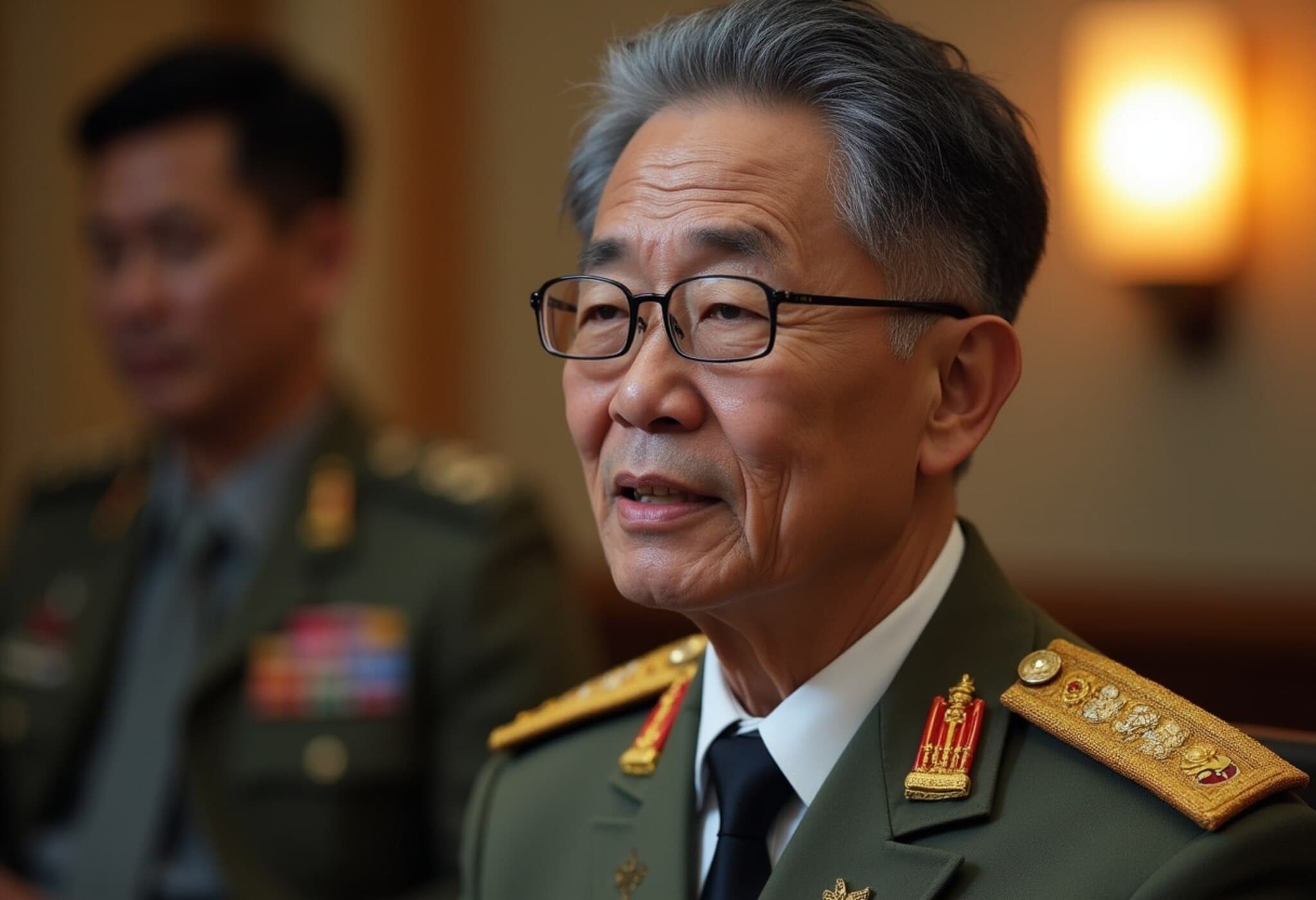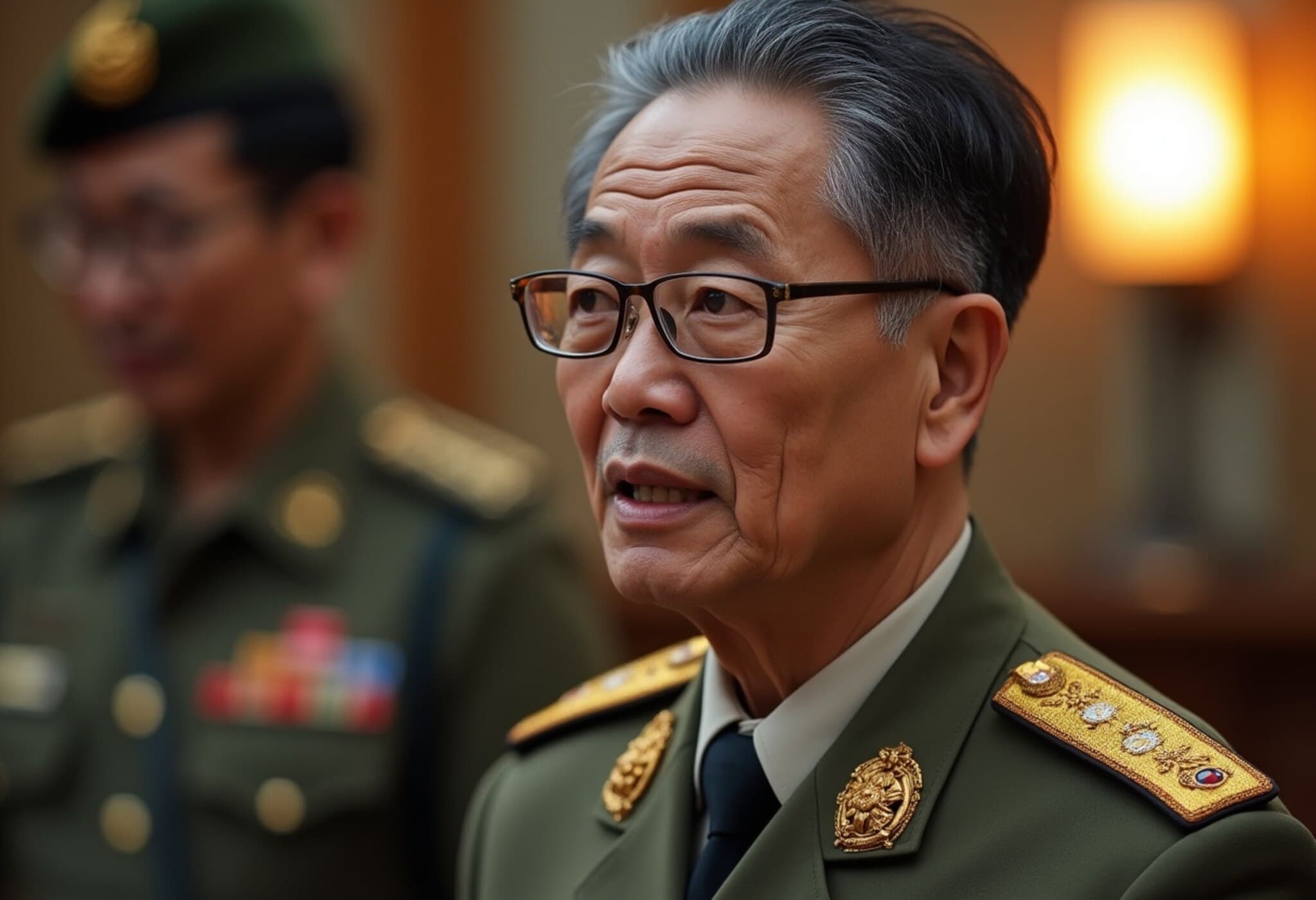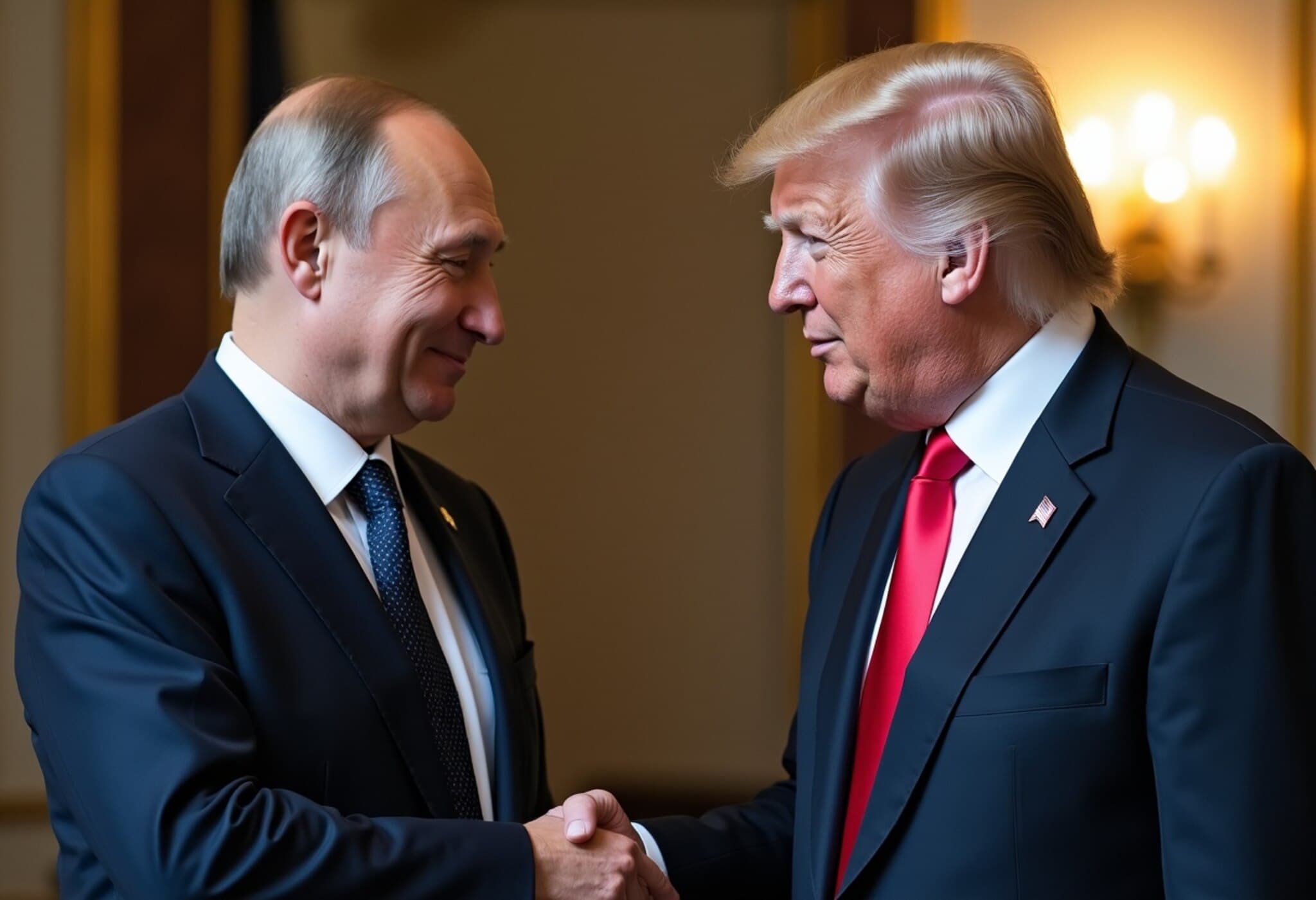Myanmar’s Acting President Myint Swe Passes Away at 74
Myanmar’s acting President, Myint Swe, who held a largely symbolic office following the military coup in 2021, has died at the age of 74, the country’s military authorities confirmed on Thursday. His death marks a significant moment in the prolonged political and humanitarian crisis gripping Myanmar.
Final Days Marked By Protracted Illness
Myint Swe had been on extended medical leave for over a year, receiving treatment for neurological and neurodegenerative ailments. According to official military sources, he died at 8:28 a.m. local time in a military hospital located in Naypyitaw, the capital. Although the exact date of his state funeral remains undisclosed, it is expected to be held with full governmental honors.
His health deteriorated sharply after he was admitted to the hospital following earlier treatment in Singapore during April 2024. Military media reports revealed he suffered from peripheral neuropathy, fever, cognitive impairment, and appetite loss, severely impacting his ability to fulfill his duties.
Myint Swe’s Rise and Role in Myanmar’s Tumultuous Political Landscape
Myint Swe assumed the acting presidency hours after the military ousted the elected government on February 1, 2021. As the country's first vice president and a loyalist to the military-backed Union Solidarity and Development Party (USDP), he was constitutionally positioned to replace President Win Myint. However, his appointment was widely disputed by legal experts and international observers because the incumbent president was neither formally resigned nor incapacitated.
This move effectively enabled Senior General Min Aung Hlaing to consolidate power via an extended state of emergency declared by Myanmar’s National Defense and Security Council (NDSC).
During his presidency, Myint Swe's responsibilities were largely ceremonial. The real control of the country resided with military strongman Min Aung Hlaing, who continues to preside over a fractious Myanmar still wrestling with civil conflict and widespread resistance against military rule.
A Controversial Military Figure with a Complex Legacy
Before his controversial promotion, Myint Swe cultivated a long and influential military career. He was known for his allegiance to former junta leader Than Shwe and held various critical roles, including chief minister of Yangon Region (2011-2016) and commander during the brutal crackdown on Buddhist monk-led protests in 2007.
His name is linked to several key repressive actions, notably the 2002 arrest of relatives of former dictator Ne Win and the 2004 purge of ex-Prime Minister Khin Nyunt. He also led Myanmar’s military intelligence services, positioning him centrally within the country's power structures.
Global Repercussions and Sanctions
Following the 2021 coup, the United States Treasury imposed sanctions on Myint Swe, labeling him and other senior military officials as undermining Myanmar’s democratic transition. These sanctions serve as a broader international rebuke to Myanmar’s military regime and have compounded the country's diplomatic isolation.
What Lies Ahead for Myanmar?
Myint Swe’s death occurs amid ongoing conflict and political instability, with no clear indication that the current crisis will ease. The military junta remains in control, but widespread armed resistance and civil unrest continue to define Myanmar’s volatile landscape.
Survived by his wife and two children, Myint Swe leaves behind a legacy intertwined with Myanmar’s decades-long struggle between authoritarian rule and democratic aspirations.
Expert Insight
From an American policy perspective, Myint Swe’s death highlights the enduring challenges in Myanmar’s path toward democracy. The United States and international community face complex decisions in balancing sanctions, diplomatic pressure, and humanitarian aid amid a leadership vacuum and ongoing conflict.
Moreover, this event raises critical questions: Can Myanmar’s military regime navigate succession without further destabilization? And what role should the international community play to support civilian resistance and protect human rights?
Editor’s Note
The passing of Myanmar’s acting President Myint Swe underscores the fragile and turbulent state of the country’s governance. While his role was largely symbolic post-coup, his death removes a figure entrenched in Myanmar’s military-political machinery. Observers should watch closely as Myanmar’s junta manages this transition amid persistent internal conflict and international scrutiny. The broader struggle for democracy in Myanmar remains unresolved, demanding nuanced engagement from global stakeholders.













